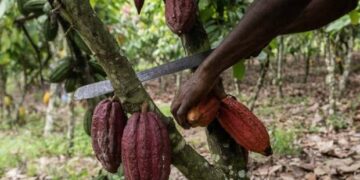The Ministry of Finance, has reacted to media reports of Ghana being downgraded from a Middle-Income Country (MIC) status to a Low-Income Status (LIC) by the International Monetary Fund (IMF).
The Finance Ministry in a press statement issued on Wednesday, April 14, 2021, debunking the various media reportage that the country had now been classified as a LIC, noted the groupings of economies presented in the Methodological and Statistical Appendix of the IMF’s April 2021 Fiscal Monitor Report – the page from which Ghana was categorised as a LIC – is mainly for analytical purposes.
According to the Ministry, the IMF’s Fiscal Monitor seeks to analyse the countries’ latest public finance developments, update medium-term fiscal projections as well as assess policies to put public finances on a sustainable footing and does not aspire to classify countries by income level.
“We wish to state that Ghana continues to be categorised as a “Lower-Middle Income Economy” based on the widely-recognised classification of the World Bank and the UN,” said the Ministry.
The Ministry further in its press statement, bemoaned the reportage of the country being classified as a LIC by media houses in the country without first verifying from the Ministry, the World Bank or the IMF office in Ghana, noting that, “Public mis-information of this magnitude has serious implications for the international investor community, especially coming on the heels of a major and successful Eurobond issuance two weeks ago.”
Read below details of press release:
Ghana has not been Down-Graded as a Low Income Country
Accra, 14th April, 2021 – The Ministry of Finance has noted with concern publications in some media houses, including Joy FM, that Ghana has been downgraded as a “low income country” by the IMF in accordance with its latest Fiscal Monitor.
We wish to state that Ghana continues to be categorised as a “Lower-Middle Income Economy” based on the widely-recognised classification of the World Bank and the UN.
The IMF Fiscal Monitor does not aspire at classifying countries by income level. Instead, it analyses the latest public finance developments, updates medium-term fiscal projections, and assesses policies to put public finances on a sustainable footing. The groupings of economies presented in the Fiscal Monitor’s Methodological and Statistical Appendix serve an analytical purpose only. In this appendix, Ghana is conveniently categorized as a “Low-Income Developing Country (LIDC)”, like other Lower-Middle Income Economies such as Côte d’Ivoire, Kenya, Nigeria and others.
Ghana’s classification in the recent IMF Fiscal Monitor did not change. In effect, there is nothing like the country being downgraded.
Government has put in measures including the GHS100 billion Ghana CARES Obaatanpa programme that will provide the fiscal stimulus to drive growth and economic transformation post Covid-19 pandemic.
Ghana is projected to maintain a positive economic growth of 0.9% in 2020, representing one of the few “pockets of resilience” on the continent. In 2021 and over the medium term, the Government expects GDP growth to average 5% and the deficit to decline to under 5% by 2024.
We wish to reassure all Ghanaians that Ghana is still classified as a Lower-Middle Income Country. It is unfortunate that the media houses in Ghana did not contact the Ministry for verification, neither did they contact the offices of the World Bank and/ or the IMF in Ghana for corroboration. Public mis-information of this magnitude has serious implications for the international investor community, especially coming on the heels of a major and successful Eurobond issuance two weeks ago. END









